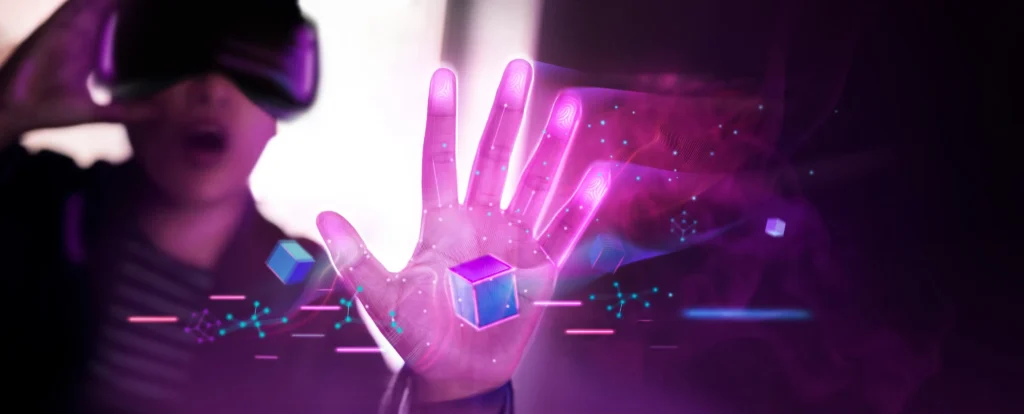
Artificial Intelligence (AI) is playing an increasingly important role in the world of blockchain, cryptocurrency, and the metaverse. From improving the efficiency and security of blockchain networks to enhancing user experiences in virtual worlds, AI is helping to unlock new possibilities across these emerging technologies. In this article, we explore how AI is being integrated into blockchain, crypto, and the metaverse, and the potential impact it will have on these industries.
AI and Blockchain: Enhancing Security and Efficiency
One of the primary areas where AI is making an impact on blockchain technology is in improving the security and efficiency of blockchain networks. Blockchain networks are decentralized by design, which makes them resistant to many traditional forms of hacking and fraud. However, as blockchain networks grow, they become more complex and require significant computational resources to maintain security and process transactions.
AI can help optimize blockchain networks by using machine learning algorithms to detect and prevent malicious activities such as double-spending attacks or unauthorized access. For example, AI-powered systems can analyze transaction patterns and identify anomalies that may indicate fraud or hacking attempts. This proactive approach can help protect blockchain networks and ensure the integrity of transactions.
In addition to enhancing security, AI can improve the efficiency of blockchain networks. AI algorithms can optimize the way transactions are processed and validated, reducing the time and energy required to maintain the blockchain. This is particularly important for Proof of Work (PoW) blockchains like Bitcoin, which are notorious for their high energy consumption. By using AI to streamline processes, blockchain networks can become more sustainable and scalable.
AI and Cryptocurrency Trading
AI is also playing a significant role in cryptocurrency trading. The cryptocurrency market is known for its volatility, with prices fluctuating rapidly due to factors such as market sentiment, regulatory changes, and technological developments. AI-powered trading algorithms can help traders navigate this volatility by analyzing large amounts of data and making real-time predictions about price movements.
These algorithms use machine learning to analyze historical price data, trading volumes, and other market indicators to identify patterns and trends. Based on this analysis, the AI can make buy or sell recommendations or even execute trades automatically. This allows traders to take advantage of market opportunities more quickly and accurately than manual trading methods.
AI-powered trading bots are becoming increasingly popular in the cryptocurrency space, providing both institutional investors and individual traders with a powerful tool to enhance their trading strategies. However, while AI can help improve trading outcomes, it is not foolproof, and traders should still exercise caution and risk management when using AI tools.
AI and Smart Contracts
Smart contracts are a key innovation in the blockchain space, allowing for self-executing agreements that automatically enforce the terms of a contract without the need for intermediaries. However, smart contracts are still limited by their reliance on predefined conditions and data inputs. This is where AI can play a transformative role.
AI can enhance the functionality of smart contracts by integrating real-time data from external sources and making more sophisticated decisions based on that data. For example, in a decentralized finance (DeFi) platform, an AI-powered smart contract could analyze market conditions, user behavior, and other factors to optimize lending rates, manage liquidity, or trigger automated trades. This would make smart contracts more adaptable and responsive to changing conditions, further reducing the need for human intervention.
AI can also improve the accuracy of smart contracts by using natural language processing (NLP) to translate legal agreements into code. This would allow for more complex and legally binding agreements to be executed through smart contracts, expanding their use cases in industries such as real estate, insurance, and law.
AI in the Metaverse: Enhancing User Experiences
The metaverse is a digital universe where users can interact with each other and virtual environments in real-time. AI plays a crucial role in enhancing user experiences in the metaverse by powering virtual characters, personalizing interactions, and enabling more realistic and immersive environments.
AI-powered virtual assistants and non-playable characters (NPCs) can interact with users in the metaverse, providing guidance, entertainment, or support. These AI characters can learn from user interactions and adapt their behavior, making virtual worlds feel more dynamic and engaging.
AI can also personalize user experiences in the metaverse by analyzing user preferences and behavior. For example, an AI algorithm could recommend specific activities, events, or virtual spaces based on a user’s past behavior, helping them discover new experiences that align with their interests.
Additionally, AI is used to create more realistic virtual environments in the metaverse. AI-powered systems can generate realistic landscapes, buildings, and objects, enhancing the visual fidelity of virtual worlds. This makes the metaverse more immersive, allowing users to feel like they are truly present in the digital space.
Challenges and Considerations
While AI offers many benefits to blockchain, crypto, and the metaverse, it also raises several challenges and considerations. One of the primary concerns is the ethical use of AI in these spaces. For example, AI-powered trading algorithms can lead to market manipulation or unfair advantages for certain traders, potentially harming market stability and fairness.
Additionally, the integration of AI in the metaverse raises questions about data privacy and user control. AI systems rely on vast amounts of user data to function effectively, and there is a risk that this data could be misused or exploited. Ensuring that users have control over their data and that AI systems are transparent and accountable will be critical to building trust in these technologies.
The Future of AI in Blockchain, Crypto, and the Metaverse
The integration of AI with blockchain, crypto, and the metaverse is still in its early stages, but the potential for these technologies to complement and enhance each other is immense. As AI continues to evolve, we can expect to see more sophisticated applications of AI in these spaces, from autonomous smart contracts and predictive trading algorithms to personalized metaverse experiences.
In the future, AI and blockchain could converge to create decentralized AI networks, where AI models are trained and operated on a decentralized blockchain infrastructure. This could open up new possibilities for AI-powered applications that are not controlled by any single entity, further decentralizing the internet and creating new opportunities for innovation.
Conclusion
AI is playing an increasingly important role in blockchain, cryptocurrency, and the metaverse, enhancing security, efficiency, and user experiences. From improving blockchain networks and optimizing cryptocurrency trading to powering smart contracts and creating immersive virtual environments, AI is helping to unlock new possibilities in these emerging technologies. However, the integration of AI also raises ethical and privacy concerns that will need to be addressed as these technologies continue to evolve. As AI and blockchain converge, the future of these industries is likely to be shaped by the innovative applications of AI, creating more decentralized, efficient, and immersive digital experiences.





